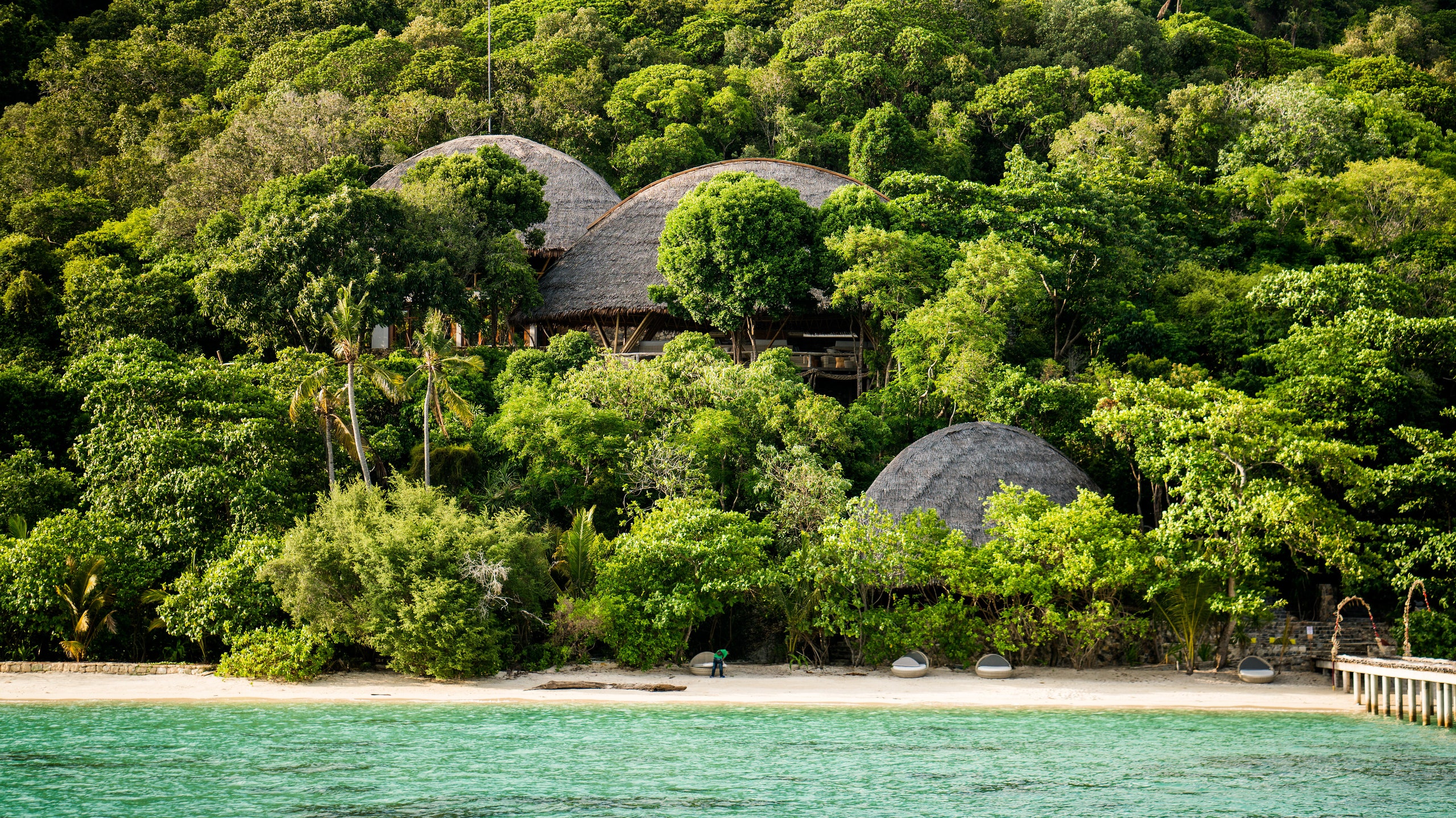With Capanne (price by donation), a conservation-minded retreat opening this month on Nkombo Island in Rwanda's Lake Kivu, Swedish-Italian preservationist Daniele Kihlgren takes the winning formula from his Sextantio concept further. There's still the nod to traditional architecture (here that means standalone huts in the local vernacular style), but for Kihlgren's first property outside Italy all profits will be funneled into a health insurance plan to help the island's autonomous Mashi-speaking population.
The residents of the isolated Anambas archipelago in Indonesia have long relied on the ocean for their livelihood. When the eco-luxe Bawah Reserve opened three years ago, it set up an independent nonprofit tasked with protecting those waters. A second location, Elang Private Island (doubles from $1,980), will open in May, consisting of six sustainable freestanding lodges and a tidal saltwater pool carved into ocean-facing rocks.
Opening in Botswana's Okavango Delta this June, Xigera Safari Lodge (doubles from $2,550) is resource neutral: Built without the use of concrete and suspended on stilts to protect the delicate floodplain, the hotel itself is 100 percent solar powered, and eventually even the game-drive vehicles will be fueled by the sun. Its owners, the Tollman family, safari vets for more than six decades, show their commitment to their employees by spending as much on amenities for the staff as for the guests.
The Haida principle of yahguudang, or respect for all living things, underpins every aspect of First Nations-owned-and-operated Ocean House *(doubles from $245) * in British Columbia's Haida Gwaii, a remote island chain known for its pristine waterways, abundant wildlife, and old-growth forests of Sitka spruce and cedar. For two years it's been a floating ecolodge, accessible also by seaplane. This summer it will move to a new, land-based location near the traditional village of Tlaga Gawtlaas and add 10 oceanfront cabins.
All listings featured on Condé Nast Traveler are independently selected by our editors. If you book something through our links, we may earn an affiliate commission.
This article appeared in the April 2020 issue of Condé Nast Traveler. Subscribe to the magazine here.

